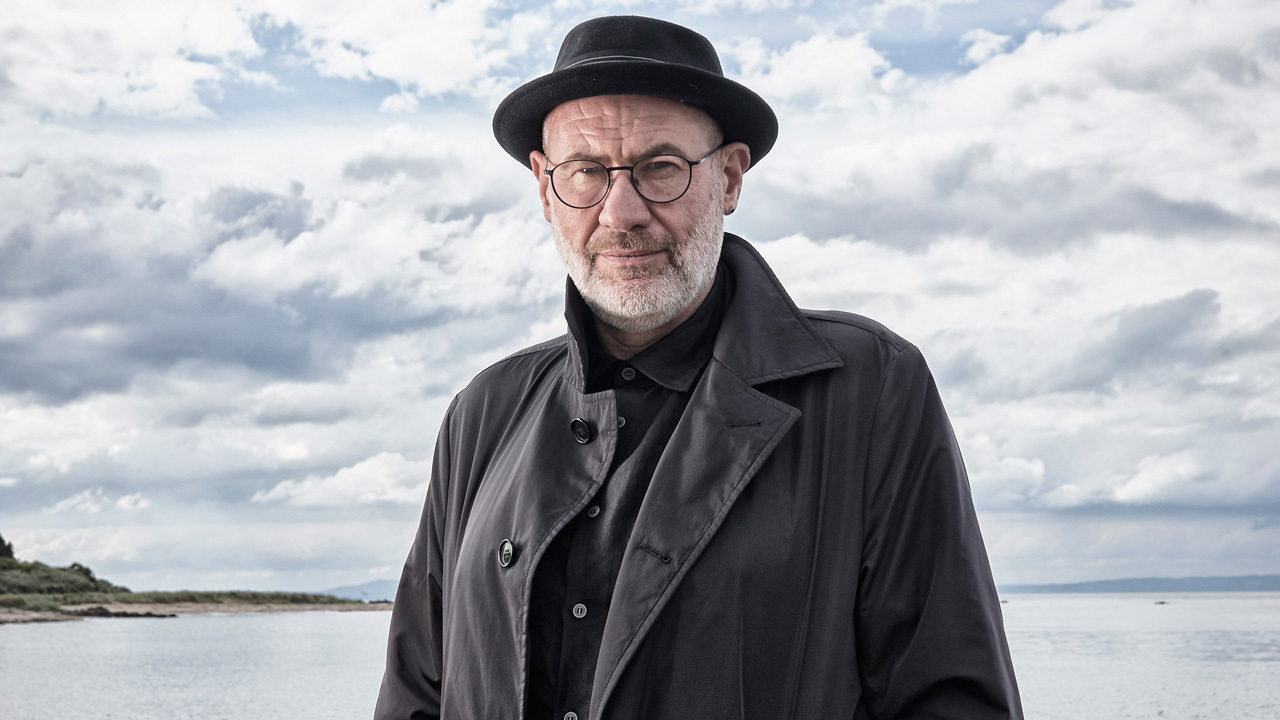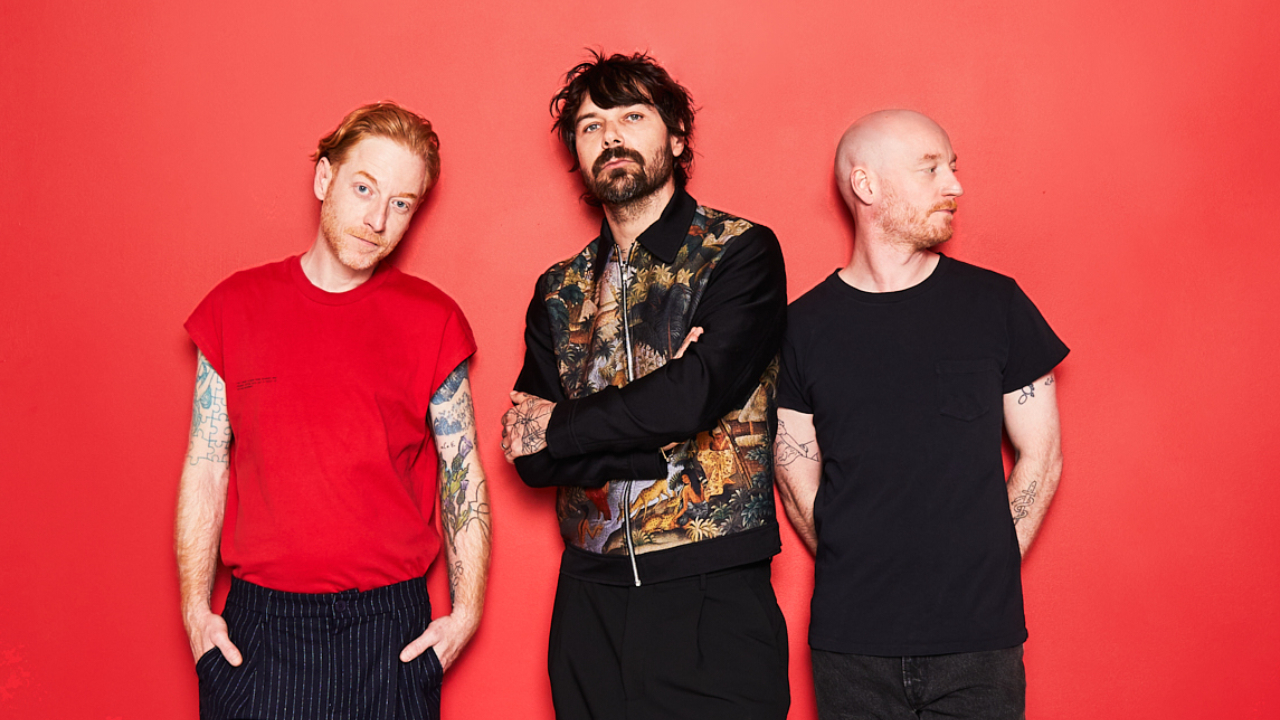Fish looks back on Misplaced Childhood and Marillion's commercial peak
As Misplaced Childhood gets a deluxe edition, Marillion’s former frontman recounts the album's success

It’s easy to forget just how quickly things happened for Marillion. Two years after Fish auditioned for the band in Aylesbury in 1981, they were second on the bill to Black Sabbath at Reading. By 1985 the singer was charming the nation’s housewives as Kayleigh was introduced on Wogan. And by the following summer it was all beginning to fall apart. Sixty thousand fans congregated at the Milton Keynes Bowl for The Garden Party to hear Misplaced Childhood – the album that gave Kayleigh to the world – in its entirety. But Marillion never played it again, and Fish would be gone within two years. More than three decades later, the album has returned as a deluxe box set.
Why is Misplaced Childhood the first Marillion album to get repackaged in this way?
Not my decision. Parlophone are in charge of all this. They decide what’s going out and what’s not going out. We can put our hands up in the air and say: “Can we suggest stuff?” and they’ll listen to us, but at the end of the day it’s all their decisions. I’m glad it’s been sorted out, but I wish it had been done two years ago. It would have made more sense to release it for the anniversary.
What has your involvement in it been?
Supplying bits and pieces of information, doing interviews for the sleeve notes, providing sleeve notes, working on the documentary Blu-ray. This was great fun to make, getting together with [producer] Chris Kimsey and setting all the old multitrack master tapes up track by track. And I had a great time going out to Hansa Studios [in Berlin] with Steve Rothery and Chris, doing a documentary for Sky Arts. Being back in that environment was like taking a walk back into wonderland. It was a bit like The Matrix, because when we were there, you’d walk out the front door and there was a wasteland. Across to the right was The Wall heading off to the distance. Now it’s a branch of KPMG.
Listening back to those multitracks, was there anything that surprised you?
What really stuck out was what we managed to do it in such a short time, and the fact it was played live. All the backing tracks and all the big skeletons were all put down in big blocks. It wasn’t surgically assembled using Pro Tools, it was all tape. It was amazing to hear the performances, and how honest and passionate they were.
Sign up below to get the latest from Classic Rock, plus exclusive special offers, direct to your inbox!
Do you ever play the album now?
I don’t tend to play my own albums. The only time is when we’re in tour rehearsal or putting a set-list together. When we did the Return To Childhood tour we had to listen to it in detail. I loved playing it live. It was incredible to go out and sing it. After a couple of shows we settled into it and completely relaxed. You’d hit the opening chord, and the next thing you’d be finishing White Feather, unaware of forty-five minutes passing. It took me back and reignited those times, and quite a few times I found myself crying on stage thinking about the lyrics, be it Mylo or be it Kayleigh. And that’s a strange thing: you’re thinking about someone who died a few years ago.
You met Kay Lee (the subject of Kayleigh) again in 2005 and gave her a copy of the album. Was that important for you?
It was just one of those things, old friends getting in contact again. She came to a show, then she came round for lunch and to meet my daughter, and I asked if she’d ever heard the album. She said she hadn’t, so I gave her a copy. She called me up and said she’d cried nearly most of the way home, that she’d never realised what I’d written. And that was one of the most touching things I ever heard. I was really glad she heard the album, but it was a personal thing more than anything else.
Have you met many real-life Kayleighs?
Hundreds. And they’re a constant reminder of how old I’m getting. Originally it was about babies called Kayleigh, then it was little girls called Kayleigh, then it was teenagers called Kayleigh, and now you’re in a bar and someone will come up and say: “Hello, my name’s Kayleigh!” It was my name, and think about it: the oldest Kayleigh could not have been born before 1985. It’s one of my big calls to fame.
Do you think you’d have remained in the band longer if Kayleigh hadn’t been such a huge hit?
I think that if Kayleigh hadn’t been a big hit, I’m not sure the band would be have stayed together, because there’s a high probability that EMI would have dropped us. There were whispers going round. And our attitude was: “Well, if this is going to be the last album, fuck it, let’s go out and do what we always wanted to do: a concept album.”
What do you think of the 1986 Garden Party concert, looking back on it now?
That was a daunting gig. By that point we were all getting a bit fried – the magic in some instances was wearing a little bit thin. But it was a big exclamation mark for us. A lot of people probably have better memories of it than I have, and there was tremendous celebration in the fan base because it was Milton Keynes: it was The Big Place. But I was more into concentrating on what I was doing – and making sure I was doing it right – than actually enjoying it.
Do you have a favourite memory from that time?
When we started playing those big gigs in the autumn to winter of 1985 it was really exciting. Everything was new: the hotels were better, the buses were bigger. But it was a yin and yang thing for me, because it was the album that made the band and broke the band at the same time.
Do you miss those days?
No.
The deluxe edition of Misplaced Childhood is out on July 21 via Parlophone and is reviewed this issue. For more on Fish’s current exploits, visit www.fishheads.club
Marillion Quiz: how well do you remember the Fish Era?
"I was an arsehole": Fish looks back on his career and reveals what's next

Online Editor at Louder/Classic Rock magazine since 2014. 39 years in music industry, online for 26. Also bylines for: Metal Hammer, Prog Magazine, The Word Magazine, The Guardian, The New Statesman, Saga, Music365. Former Head of Music at Xfm Radio, A&R at Fiction Records, early blogger, ex-roadie, published author. Once appeared in a Cure video dressed as a cowboy, and thinks any situation can be improved by the introduction of cats. Favourite Serbian trumpeter: Dejan Petrović.
